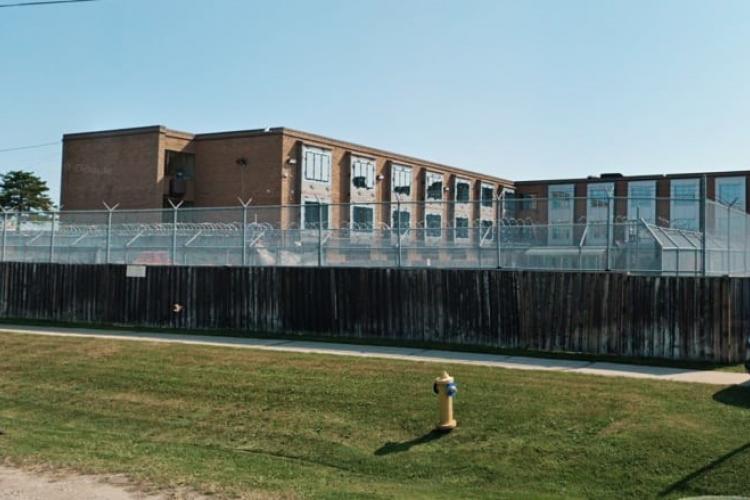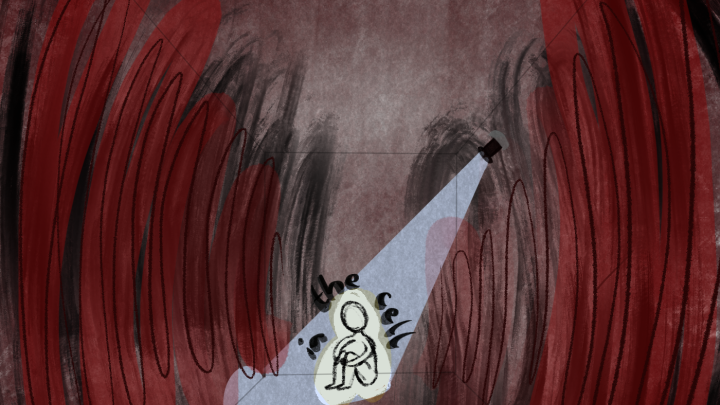Unbridled Power: Privatization in Canadian Immigration Detention
Posted
Time to read
Guest post by Jona Zyfi. Jona is a PhD student at the Centre for Criminology & Sociolegal Studies at the University of Toronto, a Junior Fellow at Massey College, and the Student Director of the Canadian Association for Refugee and Forced Migration Studies. Her research focuses on the role of technology in migration and asylum processes in Canada, detention, resettlement, and the international protection regime. This is the third post from our new series on 'Expanding the penal landscape', organised by Ana Ballesteros-Pena.

In Canada, the immigration detention regime is governed through the Immigration and Refugee Protection Act and its Regulations. It applies not only to asylum seekers and failed refugee claimants, but also to permanent residents and other migrants. Some await deportation, but some may be pursuing legal avenues to remain in Canada.
Detention also separates the foreigner from the citizenry while preserving the state’s sovereignty and authority to control physical and social borders. This exclusionary impulse raises various conceptual and legal issues. Among the most salient is the asymmetry between the entitlement to seek asylum, enshrined in the Universal Declaration of Human Rights, and a state’s right to control who can enter and remain. Another anomalous dynamic is at work here. The decision about whether someone can be admitted or excluded is presented as a public function, yet the state simultaneously delegates certain procedures to private actors to extend its power and assert more control over migrants with less accountability. Audrey Macklin and I have explored the increasing privatization of detention and criminalization of immigration policy in Canada.
This development is sandwiched between longer-standing practices of transferring responsibility and liability to private airline carriers to intercept undocumented migrants and the reliance on private security and airlines to enforce deportation orders. We address the use of private security to supervise and control detainees, the delegation of confinement from federal immigration detention centres to provincial jails, and alternatives to detention through NGOs and private citizens who act as sureties in the community.
The shift to entirely private facilities in the US, UK, and Australia has resulted in a lack of access to fair asylum processes, inadequate health care, substandard conditions, and blatant human rights violations. In Canada, private companies still have a relatively limited role. Hired through competitive processes, they construct facilities, provide security, and manage most daily operations in three in-land immigration holding centres (IHCs) under the supervision of the Canadian Border Services Agency (CBSA). However, the division of labour between CBSA and private security remains nebulous.
In stark contrast to other law enforcement agencies in Canada, the CBSA lacks a dedicated, independent review body to monitor its work, investigate complaints or take disciplinary action. This undermines public trust in the agency and sustains a culture of secrecy. In fact, CBSA contractors are not subject to the CBSA Code of Conduct, but instead are asked that they “respect the spirit and intent of its requirements”. Although accountability and transparency mechanisms are eroded by privatizing tasks exclusive to government actors, this process also legitimizes the power of private entities while diminishing the state’s monopoly on coercive power and the deprivation of liberty.
The contractual allocation of public functions to the private sector tells only part of Canada’s immigration detention story. The other part unfolds with the delegation of confinement from federal immigration detention to provincial penal institutions. The detention of foreign nationals can occur when they are suspected of being a flight risk or a danger to the public, their identity is not established, or detention is required to complete an examination. A detainee can then be placed in an IHC or a provincial jail. As per the Detention Manual, IHCs should always be the default facility and jails should be reserved for detainees who have served a criminal sentence and await deportation, have been deemed to be a danger to the public, or whose high-risk behaviour cannot be managed within an IHC. Approximately 33% of detainees, including those without criminal records and suffering from mental health issues, have been consistently placed in jails since 2017. Only about 5% of detainees are held on public safety concerns. Usually, the decision on where to hold a detainee is based solely on the risk assessment score assigned by a CBSA officer. Regardless of the assessment outcome, migrants outside the geographical location serviced by an IHC are housed in a jail.

Lucia Vega Jimenez in a photo shown at a coroner’s inquest released on 29 September 2014. Jimenez died in hospital in December 2013 after she was found hanging in a CBSA holding cell at Vancouver’s airport which was being supervised by private security (Photo: the Canadian Press).
https://www.cbc.ca/news/canada/british-columbia/lucia-vega-jimenez-found-hanging-in-cbsa-shower-stall-kicked-out-of-canada-once-before-inquest-hears-1.2781842
In 2017-2018, a total of 1,831 (20%) detainees were held in jails; in 2018-19, 1,679 (16%) and in 2019-20, 1,932 (19%). Compared to IHCs, jails are more restrictive, and detainees are more likely to remain there longer. While a jail is not a true instance of ‘privatization', insofar as it is a public institution, we argue that it is part of an internal reconfiguration of the government's role in migrant detention. We note that the motive and mode of these intergovernmental arrangements are not dissimilar from contractual agreements between public and private entities. First, the federal-provincial deals are profit-driven. The CBSA pays the provinces a daily rate. Second, they are regulated through mechanisms that lack transparency. Third, these arrangements operationalize the literal resort to criminalization of detention by permitting the confinement of migrants in institutions designed for convicted criminals.
Theoretically, detention should be administrative. However, it becomes punitive when migrants are imprisoned and treated as convicted offenders. There are only two differences. First, whereas offenders serve a determinate sentence after which they must be released, detained migrants in Canada never know if or when they will be released. Second, both provincial corrections and federal immigration authorities disavow accountability for misconduct and abuse of imprisoned migrants. The province denies jurisdiction over migrants because they are detained under a federal statute, while the federal government denies accountability because detention conditions are governed by provincial law. The excuse for unaccountability is jurisdiction rather than privatization, yet the net effect is similar—that is, exacerbating human rights violations under conditions that make non-citizens less visible and the state less accountable.
Serving the neoliberal agenda has broadened the scope of state control over migrants. Under the aegis of deterrence and security, this trend has diminished responsibility for protecting human rights while enhancing the enforcement of detention, all without relinquishing sovereignty. Detention regimes have been legitimized in the name of efficiency, despite evidence of their failure to meet policy goals and long-term deleterious effects on an already highly vulnerable population. Documenting how current practices undermine transparency and public accountability to the detriment of immigration detainees serves as a warning against further privatization.
Any comments about this post? Get in touch with us! Send us an email, or post a comment here or on Facebook. You can also tweet us.
__________
How to cite this blog post (Harvard style)
Zyfi, J. (2022) Unbridled Power: Privatization in Canadian Immigration Detention. Available at: https://www.law.ox.ac.uk/research-subject-groups/centre-criminology/centreborder-criminologies/blog/2022/01/unbridled-power [date]
YOU MAY ALSO BE INTERESTED IN
With the support of









